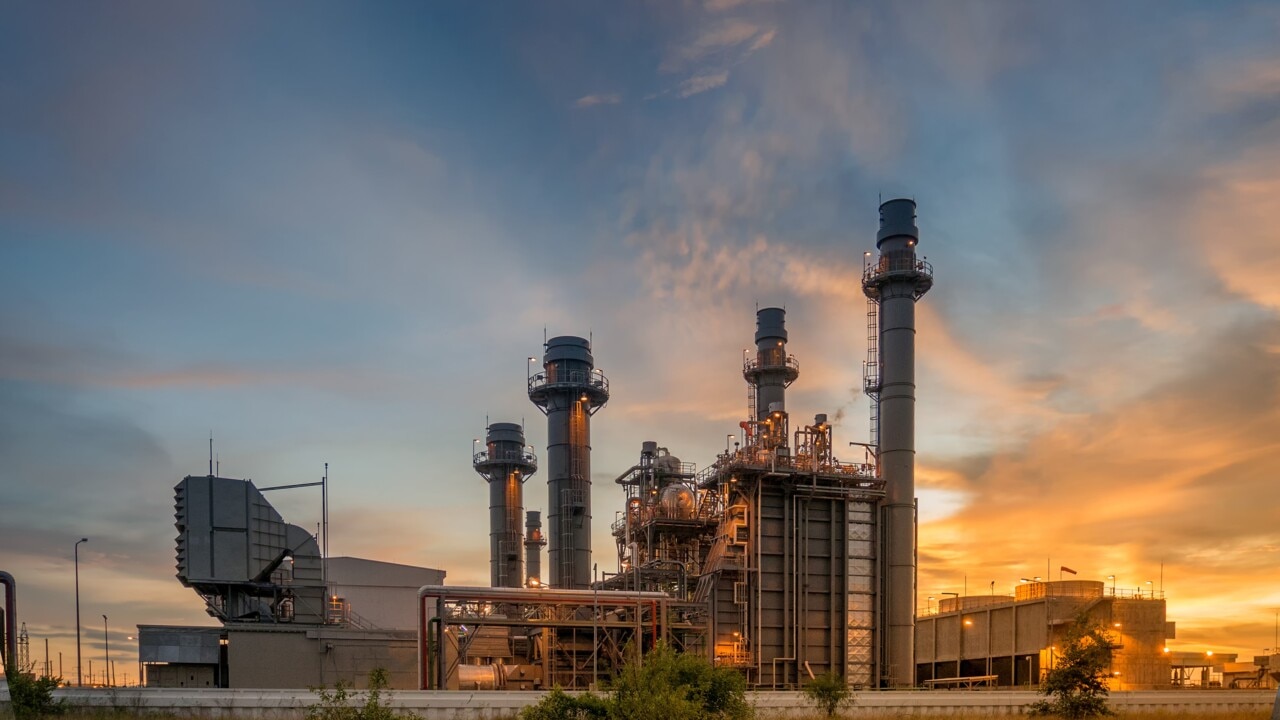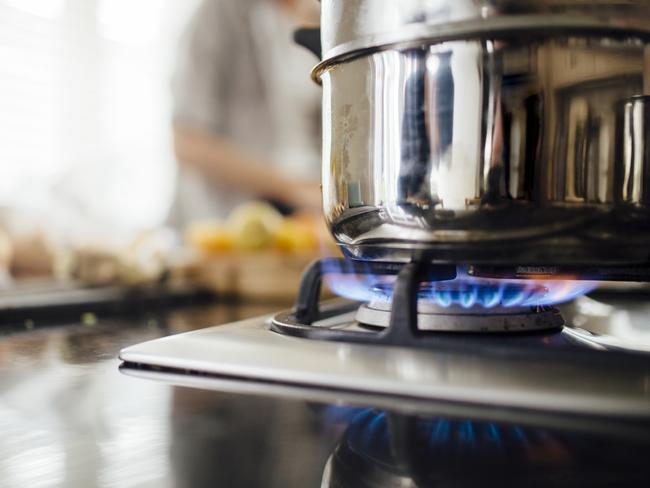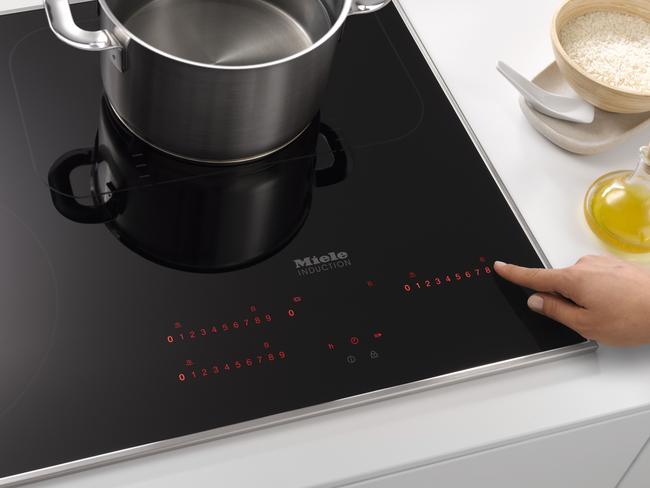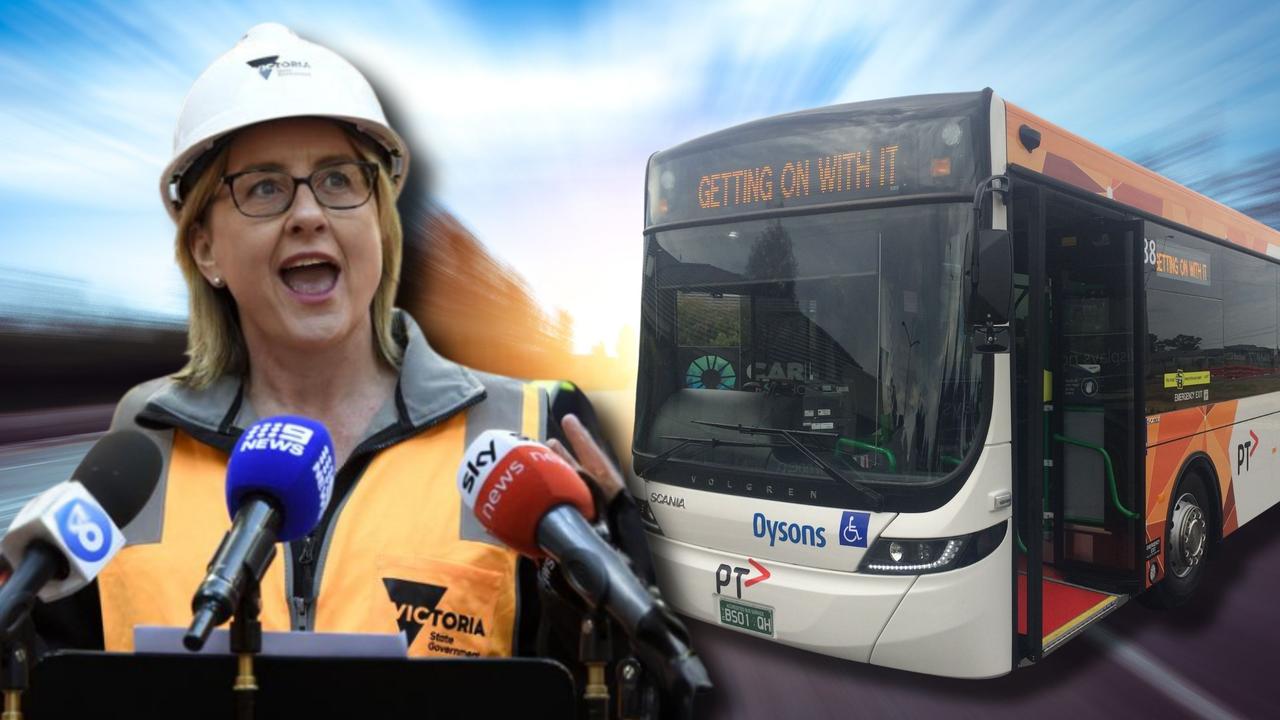Allan Government bans rebates for gas appliances
The Allan government has taken a further step in its push to change the way Victorians cook and heat their homes, banning rebates for new gas appliances.

Victoria
Don't miss out on the headlines from Victoria. Followed categories will be added to My News.
Rebates and incentives for households and businesses buying gas appliances have been banned as part of the Allan Government’s push to wean the state off the popular fuel source.
The ban, made by Energy Minister Lily D’Ambrosio, means gas companies are prohibited from offering inducements or payments to anyone seeking to connect to the gas network or who is shopping for a new hot water system, cooktop or heating system.
The gas industry has slammed the move saying it will make things more expensive in the middle of a cost of living crisis.
At the same time, the government has introduced new discounts for electric induction cooktops in a bid to lure people to electrify their homes, as part of a broader objective to meet net zero emissions reduction targets by 2045.
About two thirds of homes currently have gas connections, and the government’s war on gas has sparked a heated debate on how to transition towards electrification without exorbitant costs for families and businesses.

The government’s “gas substitution road map” looks at how to retrofit homes, including by forcing people to switch to electric cooktops or hot water systems once appliances reach the end of their life, and a ban on new homes connecting to the gas network.
The Herald Sun revealed last year that ministers were divided over the plan to ban rebates for gas appliance, despite it getting a tick of approval from Cabinet.
At the time, Ms D’Ambrosio said gas companies were “doing whatever they can to lock Victorians into paying for expensive, polluting fossil gas for decades to come”.
The Australian Pipelines & Gas Association chief executive, Steve Davies, said the decision to ban rebates meant “the state government is purposefully making Victorians pay more for essential appliances during a cost-of-living crisis”.

“Victoria’s brown coal emissions are surging upwards, and forcing households to cook with coal won’t only increase emissions but also the threat of more blackouts,” he said.
“The data shows this decision disproportionably hurts the lowest-income Victorians, with 70 per cent of rebates delivered to consumers in regional centres such as Bendigo and Ballarat.”
Opposition energy spokesman David Davis said the change would hit Victorians in the midst of a cost of living crisis.
“It’s cruel that Labor’s ideological rules will hit many of our most vulnerable families when they can least afford it,” he said.
“Families are doing it very tough in Victoria banning gas appliance rebates will be another king hit to family budgets.”
A regulatory impact statement is due to be delivered this year on the costs, benefits and timing of an expanded electrification push in Victoria.
This RIS is designed to “investigate options to progressively electrify all new residential and most commercial buildings where appropriate electric appliance options are readily available”.
“The same regulatory impact statement will consider the costs and benefits of requiring existing gas appliances in homes and relevant commercial buildings be replaced with electric appliances when the current appliance reaches end-of-life,” the government’s gas substitution road map says.
A Victorian Government spokesperson said in a statement: “We know the cost of gas is rising and supply is dwindling – that’s why we’ve brought an end to the gas industry offering inducements to vulnerable Victorians to install costly gas appliances, needlessly locking them into years of higher bills.
“Converting an existing, typical dual-fuel Victorian home to all-electric can slash bills by around $1,700, increasing to $2,700 when paired with rooftop solar.
“While we’re getting on and helping Victorians cut their power bills – the Liberals are busy playing politics advocating for Victorians to use a fuel source that is only getting more expensive.”



